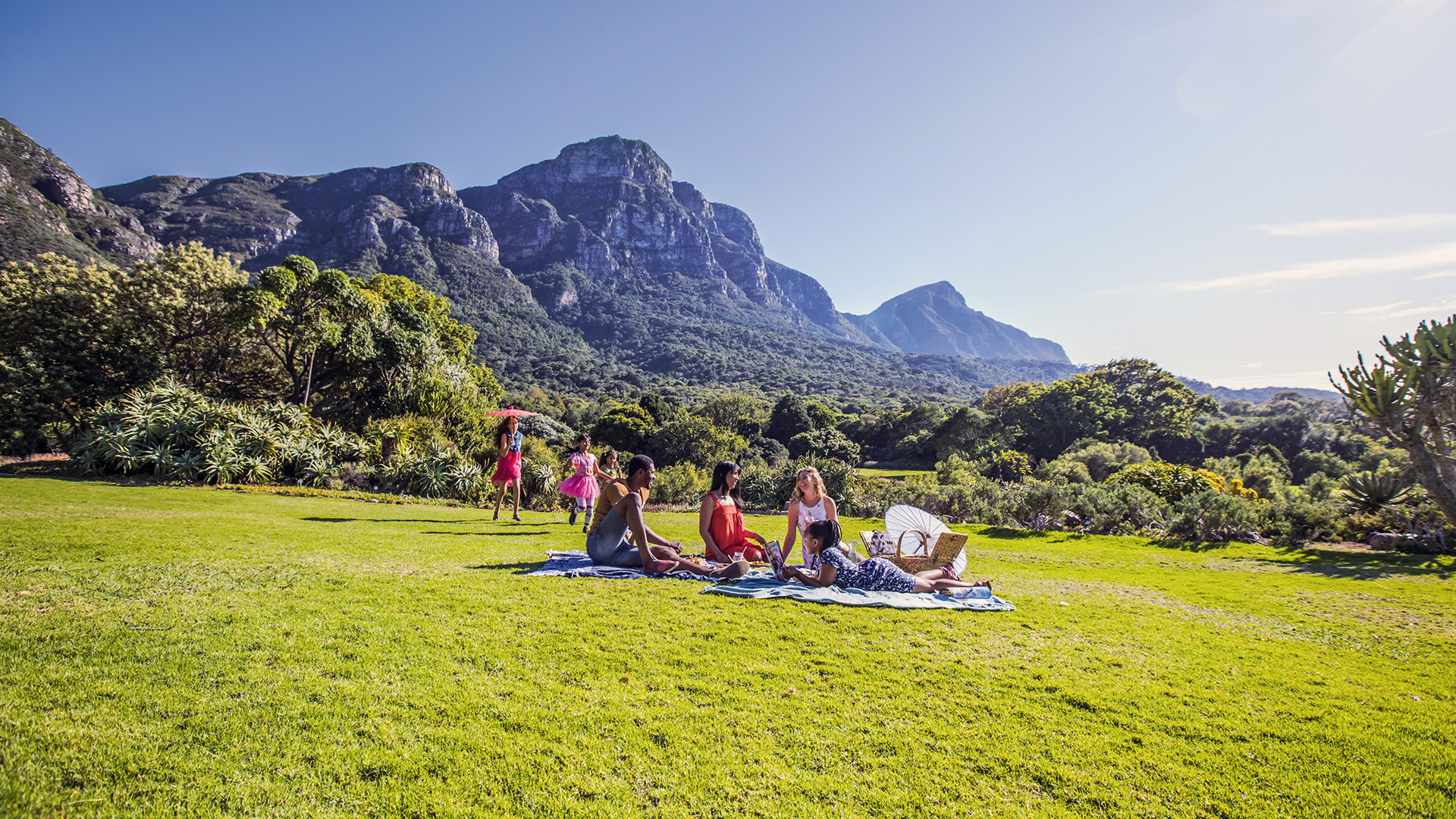South Africa is a popular travel destination due to its stunning landscapes, ample opportunities for outdoor activities, pleasant climate, diverse culture, and excellent value for money. This has contributed to its rapid growth in both leisure and business tourism.
South Africa Tourism and the South African Economy
Tourism is a major contributor to the global economy, and is recognized as a key sector for growth and development by G20 heads of state. In South Africa, the government aims to increase tourism’s contribution to the economy from 7.9% of GDP in 2009 to R499 billion by 2020.
The country’s stunning scenery, welcoming people, and top-notch infrastructure make it a highly sought-after destination, and it received a record-breaking 8.1 million foreign visitors during the 2010 World Cup. Despite global economic challenges, tourism in South Africa grew in 2011, with 8.3 million international tourists.
The regional African market is a major contributor to South Africa’s tourism industry, accounting for more than 73% of tourist arrivals and more than R50 billion in revenue in 2011. Domestic tourism is also significant, accounting for 52% of total tourism consumption, with focus on growth in cruise and rural tourism.
The National Tourism Sector Strategy aims to maximize the sector’s potential in terms of job creation, social inclusion, service exports, and foreign exchange earnings, as well as promoting cultural understanding and green transformation. South Africa is working to make travel more efficient by implementing measures such as e-visas, regional visa schemes, and visa waivers with key source markets. The country has also established standards for tourism service excellence through the South African Bureau of Standards and the National Department of Tourism.
The South African tourism industry was significantly impacted by the COVID-19 pandemic, with travel restrictions and a decrease in demand leading to a decline in visitor numbers and revenue. According to data from the World Travel and Tourism Council, the industry is projected to lose R206 billion in 2020, representing a decline of 37% compared to 2019.
The government implemented various measures to support the industry during the pandemic, including financial relief for businesses and employment support for workers. Looking ahead, the industry is expected to bounce back as the situation improves and travel restrictions are lifted. In 2023, it is predicted that the industry will return to pre-pandemic levels and continue to grow, driven by an increase in domestic tourism and a recovery in international demand.
To support the recovery and future growth of the industry, the South African government is focusing on implementing measures to enhance the country’s competitiveness as a destination, such as improving infrastructure and implementing new technologies. It is also working to diversify the industry and promote responsible tourism, including efforts to reduce the sector’s environmental impact and support local communities.
South-Africa.net and Tourism in South Africa
South-africa.net aims to promote South African tourism and benefit the country’s tourism industry and economy by providing comprehensive and accurate information about travel to South Africa. This includes information about attractions, activities, accommodations, and transportation options, as well as tips and advice for travelers. By providing a one-stop resource for travelers planning a trip to South Africa, the website aims to make it easier for people to discover and experience all that the country has to offer.
In addition to promoting tourism, south-africa.net also seeks to support the industry by partnering with local businesses and organizations. This may include promoting tours, activities, and accommodations offered by local providers, and providing a platform for them to showcase their products and services to a global audience. By supporting local businesses and organizations, south-africa.net aims to contribute to the economic development and prosperity of the country.
south-africa.net’s goal is to use its platform to promote South Africa as a destination and to support the growth and success of the country’s tourism industry, in line with the principles of ubuntu and the website’s mission to celebrate and promote the culture, people, and natural beauty of South Africa.
Business Travel South Africa
Business travelers often spend more and engage in leisure activities while in South Africa, making it a popular destination for both business and leisure travel. The country boasts top-notch infrastructure, a pleasant climate, and breathtaking scenery, making it a desirable location for international conventions and congresses.
It has over 1,000 world-class conference and exhibition venues, including both intimate bush retreats and large-scale convention centers, which offer a variety of leisure activities, cultural experiences, and shopping opportunities. The National Conventions Bureau has been established to help South Africa secure more international conferences, which are a valuable source of foreign tourists and revenue.
In 2012, the conference industry was ranked 37th on the International Congress and Convention Association’s list of top 100 destinations worldwide.
Cultural Tourism in South Africa
South Africa is renowned for its rich cultural heritage, with a diverse range of cultures that include the Zulus, who historically resisted European colonization, and the nomadic San people of the Karoo desert. Each culture has its unique art, music, and traditional rituals, and the descendants of colonial settlers have also developed variations of their European roots. The country’s history is complex and multifaceted, marked by conflicts but also by reconciliation.
The legacy of this history can be seen in the world-class sites that commemorate the past and celebrate the unity that has been achieved. In addition, the number and quality of cultural villages, community tours, and township tours has grown significantly. Cultural tourism in South Africa gives visitors the opportunity to experience the diverse traditions, customs, and heritage of the country, and gain a deeper understanding of its history and people.
World Heritage South Africa
As a country, South Africa is proud to be home to eight World Heritage sites recognized by UNESCO as places of “outstanding value to humanity.” Out of these eight sites, four are cultural sites and one is a combination of cultural and natural significance.
These sites include Robben Island, the Cradle of Humankind, the Mapungubwe Cultural Landscape, the Richtersveld Cultural and Botanical Landscape, and the uKhahlamba Drakensberg Park. These World Heritage sites offer visitors the opportunity to discover and explore the unique cultural and historical significance of South Africa, and gain a deeper understanding of the country’s rich heritage.
The Cradle of Humankind, located near Johannesburg, is an incredibly significant destination for those interested in human evolution and the origins of humanity. Often referred to as the birthplace of humankind, the Cradle of Humankind is one of the most rich and important hominid fossil sites in the world. Many people report that a visit to this site has greatly changed the way they view the world and their place in it. South Africa is rich with other sites that also demonstrate human origins, such as the fossilized footprints near Cape Town, and the vast rock paintings and shelters found in the Drakensberg mountains and throughout the country. This ancient continent holds great evidence of humanity’s origins and for many people, it can be an experience to reconnect with their roots.
In recent history, South Africa has experienced a complex past marked by conflicts and confrontation, but also by reconciliation and restitution. Visitors can explore the various battlefields and locations where significant events that shaped the country took place. From Isandlwana and Talana in KwaZulu-Natal to Soweto in Johannesburg or Langa in Cape Town, these sites tell a story of the country’s past, but understanding it can be difficult, so taking a guided tour is recommended.
South Africa does not shy away from showing the wounds of its past, for example, visiting the Women’s Monument in Bloemfontein or the Apartheid Museum in Johannesburg can be powerful experiences. However, the country also celebrates its new-found unity, demonstrated by visiting Robben Island, a place that once symbolized oppression, isolation and despair, now serves as a powerful symbol of forgiveness and hope. This is what the country as a whole is doing – moving forward and growing together
Eco-tourism in South Africa
South Africa is renowned for its diverse eco-tourism offerings, with a range of climates, landscapes, and wildlife. The country boasts everything from tropical regions in the southeast to deserts in the central area, including spectacular mountain ranges, vast grass plains, coastline, meandering rivers, and desert dunes. South Africa’s wildlife is diverse and goes beyond the “Big Five” and is supported by an extraordinary range of biodiversity.
Three of South Africa’s eight UNESCO World Heritage sites are natural sites, with one being a combination of cultural and natural significance, such as the Cape Floral Region, the iSimangaliso Wetland Park, the Vredefort Dome, and the uKhahlamba Drakensberg Park. The country is also a leader in cross-border initiatives, particularly in the development of transfrontier parks.
South Africa is home to 19 national parks, including the world-famous Kruger National Park, which spans 20,000km2. The country’s terrestrial protected areas make up around 6.9% and marine protected areas make up 11% as per World Bank report in 2012. Visitors can find a wide range of eco-tourism experiences, with private game lodges that cater to different standards and price ranges, with some ultra-luxury lodges catering almost exclusively to foreign tourists.
Paleo-tourism in South Africa
South Africa is home to many sites of significant archaeological value, particularly the Sterkfontein, Swartkrans and Kromdraai sites that are part of the Cradle of Humankind, which is considered as one of the world’s richest concentrations of hominid fossils.
Other notable sites include the uKhahlamba Drakensberg Park, which is home to the largest and most concentrated collection of rock art paintings in Africa, and the Mapungubwe Cultural Landscape, the location of an ancient and advanced African kingdom that predates European colonization. All of these sites are UNESCO World Heritage Sites, and they offer visitors the chance to explore and discover the rich paleo-tourism heritage of the country, with unique and fascinating insights into the ancient past of South Africa.
Adventure Tourism in South Africa
South Africa is a prime destination for adventure tourism, offering a vast array of outdoor activities. As the southernmost point on a large continent, the country boasts 3,000 kilometers of coastline and towering mountains that are often found in close proximity to each other. The diverse terrain and favorable climate make it a perfect playground for those seeking an adrenaline rush.
The country offers a wide range of adventure activities, including world-class climbing, surfing, diving, hiking, horseback safaris, mountain biking, and river rafting, to name a few. These activities are supported by experienced and dedicated operators who provide the necessary equipment and guidance to ensure that the experience is safe and enjoyable. From the rugged mountains to the tranquil beaches and everything in between, South Africa caters to all levels of adventure seekers.
Sports tourism in South Africa
South Africa is a top destination for sports tourism, offering world-class venues and infrastructure, a calendar of international events, and a population that is passionate about sports. According to estimations, more than 10% of foreign tourists visit South Africa for sport-related activities, with the majority being spectators.
There are a wide variety of world-class sporting events that take place in South Africa every year, such as the Cape Argus Cycle Race and the 89km Comrades marathon, which attract both local and international visitors. The country has also successfully hosted major events in the past, including the 1995 Rugby World Cup, the 2003 Cricket World Cup, and the 2010 FIFA World Cup. These events showcase the country’s capabilities and ability to attract sports enthusiasts from all over the world and provides visitors an opportunity to not just attend an event but experience the South Africa culture, beauty and people as well.
Wine tourism in south africa
Wine tourism is a rapidly expanding and highly profitable segment of the global tourism industry. In 2009, it was estimated that wine tourism alone contributed R4.3 billion to South Africa’s tourism revenue.
As the wine industry in South Africa is affected by fluctuations in the global market, Wine and gourmet tourism can help mitigate this volatility by providing an additional source of income. This form of tourism also plays a significant role in achieving the country’s goal of broadening the geographical distribution of tourism throughout the country. It’s a great way to discover the local culture, taste delicious wines, and explore picturesque wine regions.
Wine tourism in South Africa has become increasingly popular over the years and continues to grow. The country is known for its diverse wine regions, each with its own unique terroir and winemaking traditions. The Western Cape, home to the famous wine regions of Stellenbosch, Franschhoek, and Paarl, is considered the heart of the South African wine industry. The region is known for its Cape Dutch architecture, picturesque mountains, and wine farms that date back to the 17th century. The wineries in the Western Cape are renowned for producing wines made from international grape varieties such as Cabernet Sauvignon, Shiraz and Chardonnay, as well as the local varietals such as Pinotage.
Another notable wine region in the country is the Robertson Wine Valley, which is located in the Western Cape and is home to over 50 wineries and cellars that are known for producing wines with a unique and rich character. The Robertson Wine Valley is also known for its friendly and welcoming atmosphere, and it is a popular destination for wine lovers.
The wine industry in South Africa offers tourists a wide range of activities, such as wine tastings, vineyard tours, and winery experiences. Visitors can also participate in activities such as grape stomping, wine-making classes and hot air balloon rides over the vineyards. Additionally, many wineries have on-site restaurants that offer delicious food and wine pairings that allow visitors to indulge in the country’s wine culture.
Medical Tourism in South Africa
Medical tourism, where individuals travel to another country to receive medical treatment, is a rapidly expanding industry. South Africa has become a popular destination for medical tourism, as it offers a wide range of medical services at a fraction of the cost of similar treatments in developed countries.
Cosmetic surgery is the most common procedure sought by medical tourists in South Africa, however, the country’s medical professionals also have extensive experience in providing a range of procedures including organ transplants, cardiac, orthopedic and obesity surgery, as well as dentistry.
One of the major advantages of medical tourism in South Africa is the availability of highly skilled and experienced surgeons and medical professionals. The country’s healthcare system is well-developed and it has several private hospitals and clinics that are equipped with the latest medical technology.
In addition to the quality of the medical services, South Africa also offers tourists a chance to combine their medical treatment with a vacation. With its diverse landscapes, rich culture, and warm climate, South Africa is a great place to recover from surgery while also enjoying a holiday.
Many medical facilities in South Africa also offer post-treatment recovery packages that include options such as physiotherapy, rehabilitation and spa treatments. This holistic approach to recovery ensures patients feel comfortable and well taken care of during their recovery period.
Medical tourism in South Africa offers a combination of high-quality medical services, experienced medical professionals and an opportunity to recover in a beautiful and welcoming environment at a more affordable cost than in other countries.




